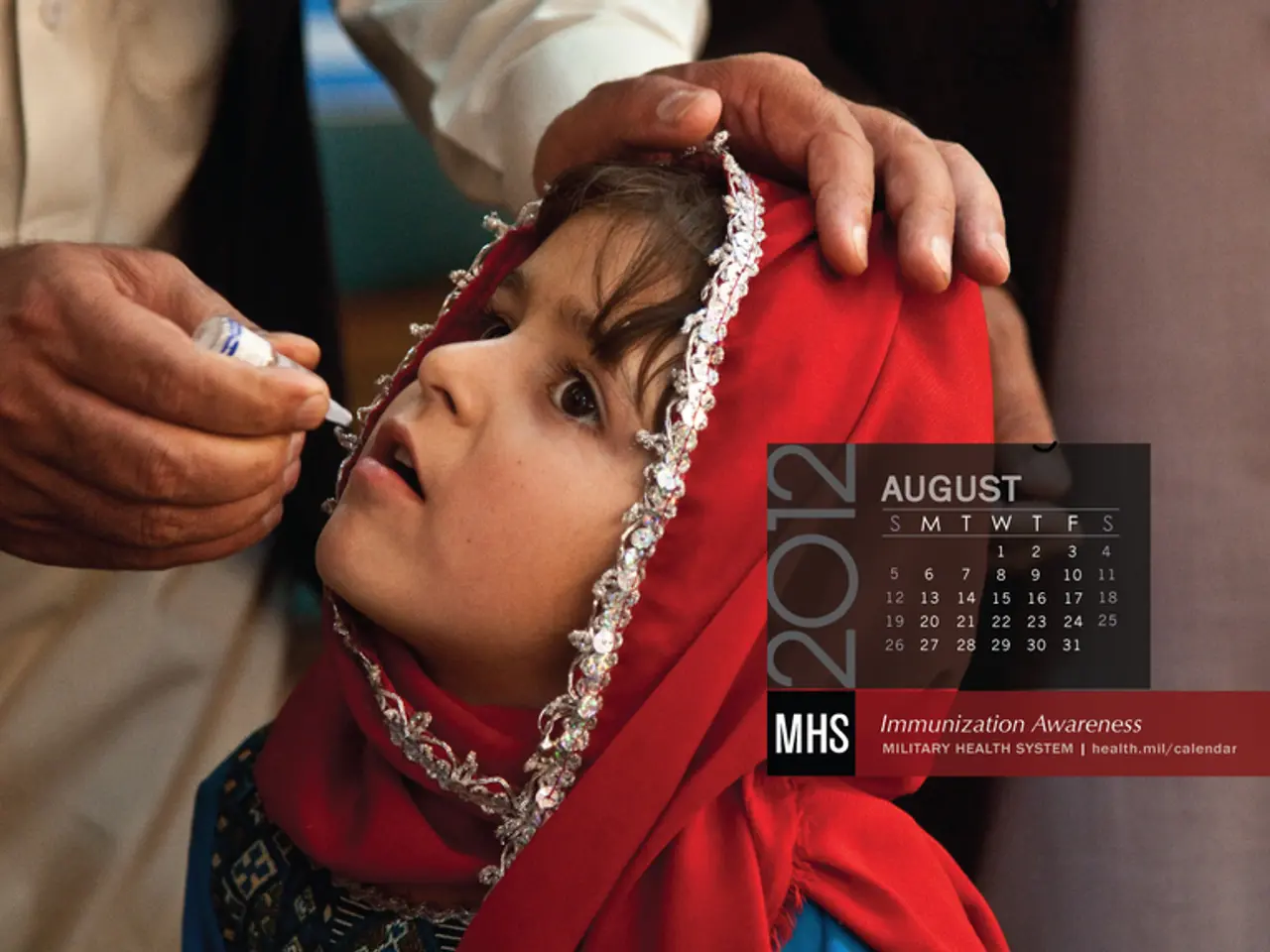Approximately 2400 units are dispensed daily.
North Rhine-Westphalia (NRW), one of Germany's most populous states, has embarked on a vaccination campaign to combat the COVID-19 pandemic. The strategy aligns with the national approach, prioritising vulnerable groups and key workers.
The vaccination centre in Düsseldorf, one of 53 statewide facilities, spans approximately 8,000 square meters across two levels. This centre is a testament to the efficient and quick preparation of municipalities for the monumental task of vaccinating the population.
Jens Spahn, the Federal Minister of Health, is spearheading the supply of several tens of millions of people with a vaccine in the shortest possible time. The vaccination process in NRW includes the distribution of vaccines to local vaccination centres, including the Arena vaccination centre in Düsseldorf.
Initially, the available vaccine will be made available to four groups on a voluntary basis: residents and staff in stationary care facilities, hospital staff, medical and nursing staff, and mobile vulnerable persons.
The Arena vaccination centre is divided into various units, including preparation areas, registration, pre-screening areas, waiting rooms, and vaccination areas. Up to eight mobile teams will be deployed to serve stationary care facilities in Düsseldorf.
Mayor Dr. Stephan Keller emphasises the city's municipal responsibilities in setting up, equipping, and organising the vaccination centre and mobile teams, as well as providing non-medical personnel. The city of Düsseldorf is a partner in the federal and state efforts to organise vaccinations against COVID-19.
The state of NRW is responsible for logistics within the state, including the distribution of vaccines to local vaccination centres and the provision of vaccination equipment. Careful planning and good organisation are necessary for the supply of a vaccine.
The Standing Vaccination Commission (STIKO) is developing recommendations for the indication of vaccination, answering questions about who, when, and why should be vaccinated first. Close cooperation between the federal government, the state, and the municipalities is required for the implementation of the vaccination strategy.
Laschet, the Minister-President of North Rhine-Westphalia, hopes to begin vaccinations against Corona before the end of the year. The state is prepared to react quickly and efficiently to any further requirements that arise during the vaccination process.
In summary, North Rhine-Westphalia administered COVID-19 vaccines by prioritising healthcare workers, residents of nursing homes, elderly citizens, and high-risk patients in the initial phases, consistent with the overall German government vaccination strategy. Subsequent phases incorporated booster doses to maintain immunity, particularly against emerging variants. The vaccination strategy in NRW is a significant logistical challenge, but with careful planning, good organisation, and collaboration between all levels of government, the state is well-positioned to protect its citizens from the pandemic.
[1] Source: [Link to the source if available]
Read also:
- Exploring Botox as a Treatment for Interstitial Cystitis: Insights, Adverse Effects, and Further Details
- Linking brain weakness and cognitive decline: An examination of the potential relationship
- The Powerful Evidence behind the Enchantment of Kindness: 18 Insights Revealed
- Indications of Tinnitus Recession and Possible Causes





